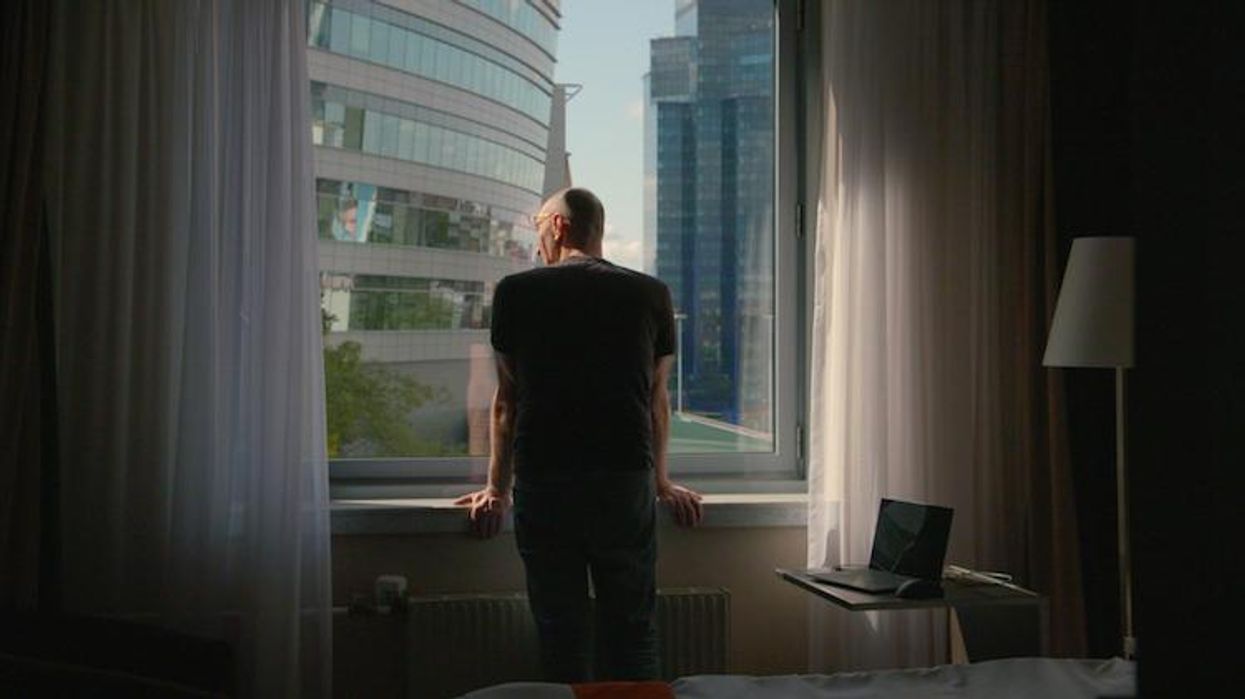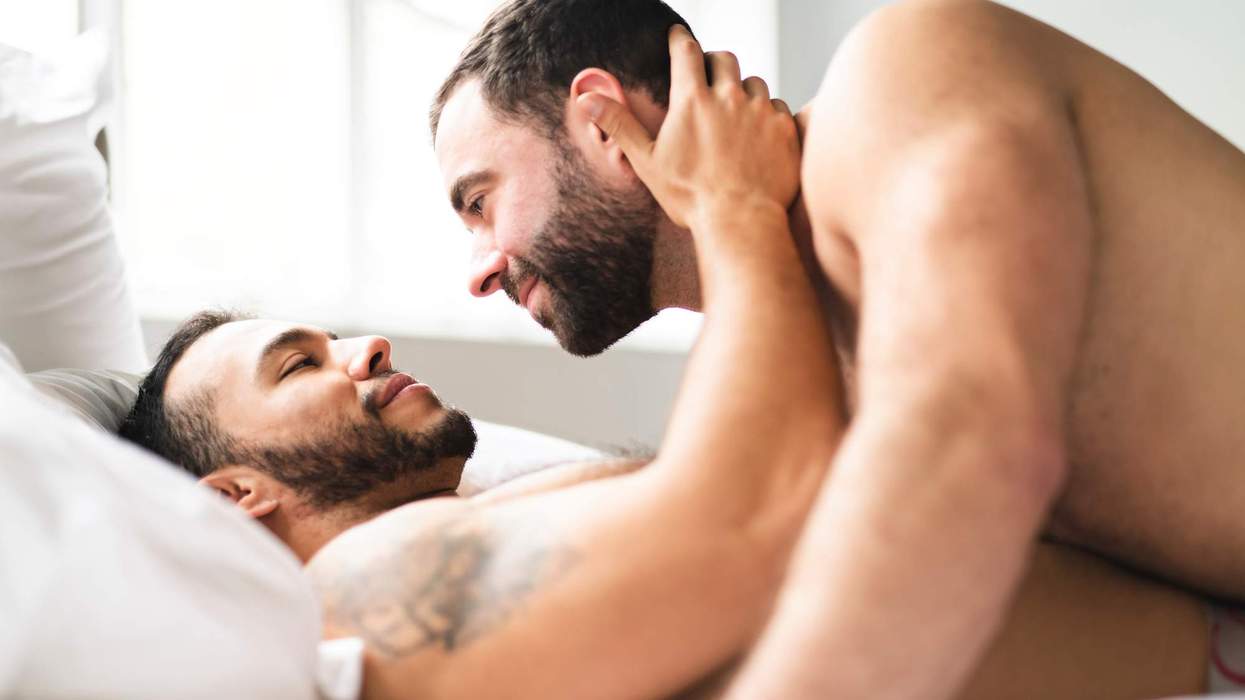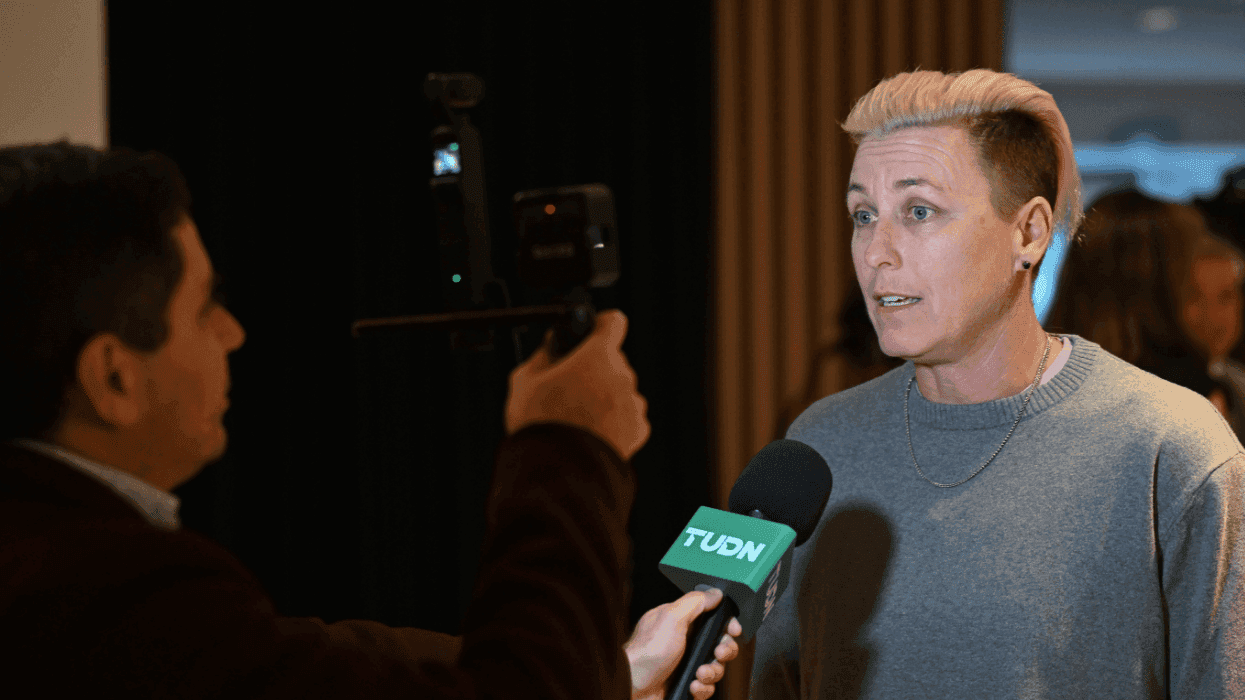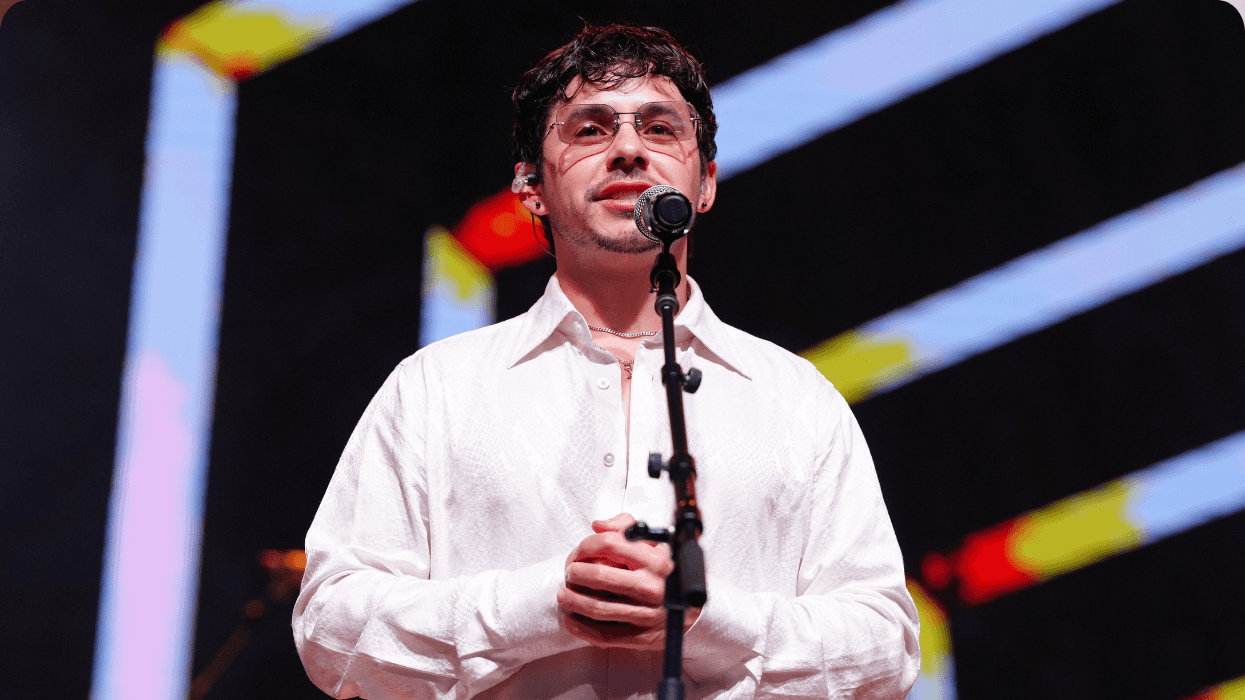For many, the thought of interviewing some of the most interesting people they've ever slept with would be the stuff of nightmares. For New Zealander Paul Oremland, though, it's become the narrative for his new documentary. In 100 Men, Oremland discusses 100 of the absolute most interesting men he's slept with throughout his life and, while many are fleeting memories, he does sit down to interview some of them.
The documentary is beautifully raw, tracking the progression of gay culture, mixed in with religion, punk rockers, skinheads and an eclectic cast of interviewees. In this sense, it's not just about sex. Rather, it's what sex can enable--in terms of producing memories and lifelong friendships and the ability to find one's self.
We caught up with the director ahead of the film's release on January 16 to talk about the significance of his latest project, the importance in understanding gay history and the shifting parameters of modern-day, gay relationships.
OUT: I was really impressed with how much you were able to vividly remember. How were you able to retain all of these experiences, and how important is the process of remembering for you?
Paul Oremland: The whole thing was very much organic. It started when I got back to New Zealand and I had time on my hands. I'd met so many people that I worried about forgetting some of them. So, I literally started to make a list.
Originally I wrote the list because I just didn't want to forget people because, really, and I'm being honest about being promiscuous, that 100 is just a selection and the figure is probably considerably larger [laughs].
What sparked the idea for the documentary? What were you aiming to convey?
It's to celebrate the fact that having sex with lots of people can be liberating, fun and you meet so many different people from many walks of life. Then, it became a love story because it had to, in terms of personalising it.
I [also] hope the film provokes thought and discussion, while also celebrating our amazing achievements. I mean, I started out in a world where, you know, gay people were physically attacked for being gay and where it was seen as a disease to be cured by electric shock treatment, to a place now where you can get married.
It's history through a personal journey.
When I watched the documentary, something became apparent to me. In order to appreciate progress, it's important to understand the roots from which our community's struggles have come from. How important do you think it is for today's younger generations to understand these struggles?
I think history is really important... it helps define the future. Loosely quoting Orwell, "if you own your history, you can control the future."
In the past, there was never any chance of being respectable. There was never an option of being respectable. As I say in the film, when one was in Britain during the mid 80s when HIV was breaking, there was a huge amount of fear. But that fear was also amplified and the headlines really did exist. There really was a headline about setting up an island off the coast of the UK and rounding up gay men, not just people with HIV. This was for all gay men.
There was also a wonderful underground culture that I loved. There was a wonderful sense of being rebellious and fighting for rights. One of the main things that's come out right across the world, in places like San Fransisco, London, Sydney, is that the clubs and pubs are now not what they used to be, and are closing down.
You say in the film, and I'm paraphrasing loosely, "I'm shocked that, on one hand, there are amazing changes. On the other hand, I've interviewed young people and there are times I'm thinking... I could have been saying the same thing 20, 30, 40 years ago." It seems like despite culture and social change, there are still common sentiments that gay people still go through despite being generations apart.
There've been massive changes. I mean, you know, you've just passed Marriage [Equality] over there [in Australia], at long last. But, at the same time, the reality is that we are still surrounded by a straight world. And constantly online... if you go onto Craigslist or, in New Zealand, NZ Dating, there's just a succession of people leading double lives.
And we're only talking about the Western World here. I met a guy the other day off Grindr and he'd come to live in New Zealand from Jordan. He came here specifically because it was a place where he could be free. His mom, [knowing he was gay], had said that he was dead.
There's a lot of discussion in the documentary about open relationships versus the idea of that "monogamous, picket fence" scenario. Could you talk to me more about this?
The vast majority of gay relationships I know are not monogamous and they seem to work better that way. But it's great if someone wants to be monogamous.
I also think there's also this whole pressure to conform, a sort of Disney princess view of the world. And, in a way, now that [marriage] is available, there's even more pressure. It's a whole new generation now, as well... suddenly there's PrEP and this whole fascination with bareback sex. But, I mean, the reality is that a lot of gay men are promiscuous.
What has this documentary taught you about yourself?
It made me realise, and I know this is corny, just how much John, my partner, means to me. The reality is I've been with John for 30-odd years now. In a way, it's an unusual relationship, but in other ways, it works for us. So, it just reinforced how much he means to me.
I hear that you have a new feature project in the works. Could you tell us more about this?
It's called Miracle. The central character is a Vicar who wants to marry his long-term Samoan partner in the Anglican church, but the Anglican church won't allow that and it becomes a huge controversy in which God is forced to intervene. We've got a screenplay that we're really excited about we're working with a couple funding bodies here in New Zealand.
100 Men will be released on digital platforms and DVD on January 16.
Louis Hanson is a writer and activist from Melbourne. Check out his website, Instagram and Twitter.





























